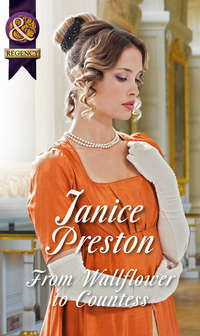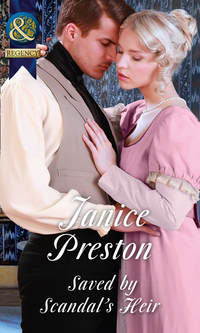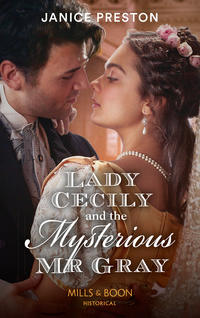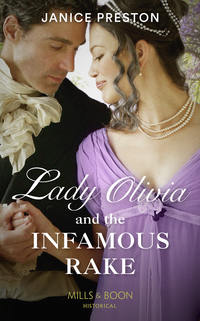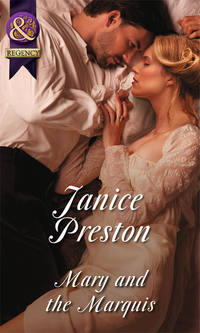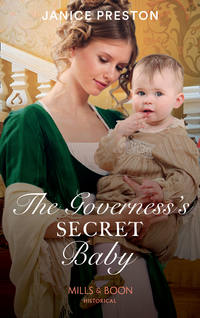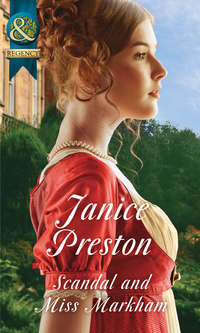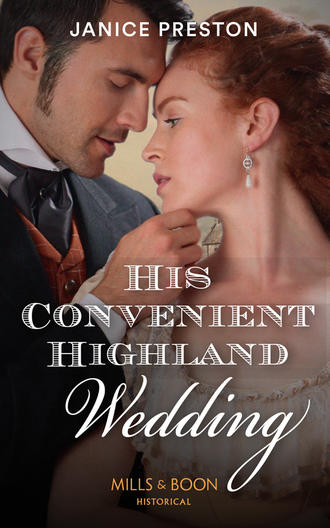
Полная версия
His Convenient Highland Wedding
‘Have you finished eating?’
Flora nodded. Lachlan packed up the basket before setting it on the seat opposite them.
‘You’d better call your dog,’ he said.
Flora opened the door. ‘Bandit! Here, boy.’
He streaked across the turf, his short legs pumping, tongue lolling. A flying leap at the doorway and he skidded across the carriage floor like he was on ice before tumbling head over heels to land in a heap at Lachlan’s feet. Her husband’s mouth thinned. He rapped on the ceiling and the carriage lurched into motion.
‘That is well behaved?’ he commented as Bandit leapt on to Flora’s lap, propped his front paws on her chest and licked her ear.
‘He is happy to see me.’ Flora hugged her pet as he wriggled in ecstasy. ‘He’ll soon settle down.’
Lachlan raised one brow as Flora persuaded Bandit to curl up on the seat between them.
He leaned back against the squabs and sighed. ‘To answer your question, I bought Lochmore because I thought it might gain me acceptance with the Scottish nobility. I was wrong.’
He turned his penetrating gaze upon Flora and a warning shiver trickled down her spine.
‘And that is where I come in?’ Her voice was barely a whisper.
‘It is. With a well-born wife I shall find doors opened to me that would otherwise remain closed.’
Foreboding twisted her stomach as she fondled Bandit’s ear, her mind racing. Her one consolation in marrying Mr McNeill had been that she would never again have to face society after the scandal of her almost-betrothal to the Duke of Galkirk. Now, in an awful twist of fate, it seemed the only reason Lachlan had married her was to provide him with an entrée into that society.
‘Why do you wish to be accepted by the nobility? Why not socialise with the business classes? These days, many of them are richer than the aristocracy, especially here in Scotland.’
‘I seek not only investment, but patronage.’ Lachlan leaned forward, propping his forearms on his knees, linking his hands together as he stared at the floor. ‘I bought a whisky distillery and invested in new equipment. My whisky is good—a new blend of malt and grain. The business has potential, but I’ve struggled to get the name accepted. I need influential backers and that’s why I need you.’
He twisted his head, his dark eyes intense as he stared at Flora, before lowering his gaze once more to the floor.
‘But why buy a castle if you need money for your business? You could afford to sell it for less, perhaps, to gain customers. Or advertise it in the newspapers.’
‘It’s not that simple. I need introductions to the gentlemen’s clubs and hotels in cities such as London, Edinburgh and Glasgow to allow me to increase production, but for that I need patronage. Those establishments are so set in their ways, they need to be persuaded to even try a new supplier, let alone make a permanent change.’ He shook his head. ‘I know I can do better.’ The words burst from him. ‘I know we can produce enough fine-quality whisky to expand the distillery and to supply many more customers, but I just need the opportunity. I need the right doors to open for me.’
Flora frowned at his sudden intensity. ‘You make it sound as though it is a matter of life and death.’
‘It may be exactly that, for the men and women who rely upon me for work.’
* * *
How could Flora possibly understand? She was nineteen years old and even though her family’s fortunes had declined over the past years she could still have no concept of what it was like to grow up in absolute poverty, with no choice but to steal to try to ensure your family’s survival.
He wanted no further questions. The past was too personal. Too shameful. It belonged in the past. ‘As to why Lochmore Castle in particular—it is family legend that there is McNeill blood running in the veins of the Lochmore chiefs. It felt right to have a home with which I share some history, however ancient that link might be.’
And it felt good to put down roots.
‘Your clan is linked to the Lochmores? You do know that the McCrieffs and the Lochmores are old enemies?’ Her look was almost accusatory.
‘Why should that make any difference?’
She huffed in irritation. ‘This land we are driving through used to be McCrieff territory until King John Balliol granted possession of it to the Laird of Lochmore.’
‘King John Balliol? Never heard of him. How long ago was this?’
‘I think...in the thirteenth century. It may have been long ago, but there was enmity between our clans even before that time. Grudges live long in the Highlands and this grudge has never been forgotten. Or forgiven.’
Lachlan suppressed his snort of derision.
‘I do not set stock in those ancient feuds and grudges, Flora. I am more troubled by what is happening today...the clearances...the vast injustices in society...the people living in poverty now.’
‘Well, and so am I.’ Her forehead wrinkled. ‘I know Highlanders have been forced off their land to make way for sheep, but there are some clan chiefs—my father for one—who’ve worked hard to support their tenants. But then the blight hit again and some tenants emigrated anyway—to America or Canada and a better life.’
Some had gone to Australia, too, and he had seen the poor wretches as they had disembarked after the four-month voyage—lost and confused in a land so far different from their homeland that they might just as well have landed on the moon.
‘And those who did not, or could not, take passage went to the cities to search for work, driving down wages and needing shelter where there are already too few houses to go round,’ said Lachlan. Glasgow and Edinburgh were already heaving with Irish immigrants following mass starvation and disease in Ireland, caused by the same potato blight now creating havoc in Scotland. ‘I do not believe—nay, I know for a fact—that they have not gone to a better life.’
And they were right back on the topic he did not wish to discuss. His past. He rubbed his temples.
‘Tell me about your brooch, Flora. Why does your father dislike it?’
It helped distract Flora. She touched the brooch again and then she unfastened it and held it out to him.
‘He did not dislike it, other than as a wedding ornament. I found it, seven years ago, and...and I like to wear it.’
It sounded like half a tale. Or even less. Lachlan examined the brooch. The workmanship was a little crude to modern eyes—a disc of silver, decorated with the moulded form of a thrift plant, the letters R and A, and a pair of swords that crossed over the centre.
‘It looks old—I should have thought a lady such as yourself would wear finer jewellery.’ He handed back the brooch.
She bent her head, tutting in exasperation as she struggled to fasten it.
Lachlan reached to help. ‘Allow me.’
As their hands touched a distinct tingle chased up his arm, as it had when she had startled him by stroking his hand—a gesture so unexpected he had struggled to know how to react. Was she aware of the intimacy of that touch or had she simply meant to reassure him?
‘The catch has always been stiff.’
He felt the tremble of her fingers before she withdrew them to allow him to fasten the brooch to her cloak. He leaned closer to see what he was doing and her soft breath whispered through his hair, sending shivers racing across his scalp. He fought the urge to haul her against him and plunder her mouth, too aware of her innocence and her gentle upbringing to risk frightening her.
‘Did nobody miss the brooch, or look for it?’
‘No. It had been lost a long time.’
There. It was done. He straightened. ‘How would you know how long it had been lost?’
She slanted him a look from those green eyes. ‘I went exploring in a forbidden part of the castle.’
She bit her lower lip, staring at him. ‘No one but my father was allowed there, but I went anyway. It was thrown aside...discarded among a heap of...’ She paused. Then she tilted her chin. ‘A heap of old rags.’ Her eyes slid from his to Bandit as she fondled his ear.
He really was a disreputable-looking animal—one ear pricked, one drooping; a scruffy, wiry white coat; and those black eye patches that really did give him the look of a bandit. The dog seemed to sense his regard. He raised his head and stared back, almost defiantly, although that seemed almost ridiculously fanciful.
He had enough attitude for himself and his mistress combined. Lachlan broke eye contact first and looked back at Flora, whose attention was still on Bandit. She often seemed wary of speaking her mind, but that tale of defying her father gave him hope she was not as timid as she appeared. He was under no illusions about himself—he’d lived a harsh life, among hard men, and it had shaped the man he had become: self-sufficient and tough. There was no place in his life for a bride easily intimidated, or one who needed to cling to her husband. He had no wish to get too close to anyone, not even his wife.
He had at least diverted her from the subject of his painful, shameful past. Flora need never know about that. He intended to put it firmly behind him. Just as soon as he had tracked down Anna.
* * *
It was late afternoon before the carriage turned off the road on to a track that led steadily upwards through ancient woodland of oaks and birches wearing the russet hues of autumn. To their right the land shelved steeply away from the track and Flora caught glimpses of the blue-green waters of a loch, far below.
‘That is Loch Arris. We are nearly home.’
‘What made you buy Lochmore Castle?’ Flora asked on impulse. ‘Why not a castle linked to the McNeill clan?’
Lachlan shrugged. ‘The McNeills’ seat is Barra in the Outer Hebrides but my father never lived there. Lochmore is near enough to Glasgow for me to see to business and, as I said, there is that rumour of that long-ago link between the Lochmores and my branch of the McNeills. It seemed fitting.’
Ahead, Flora could see a gatehouse built of grey stone, with smoke curling from the chimney, next to a square tower that straddled the carriageway.
‘Who lives there?’
‘Gregor and Brenda Fraser—Gregor is the manager at my distillery. The original outer curtain wall is lower than it once would have been, but I believe the gatehouse and the tower are much as they would have always been.’
The light dimmed as they passed beneath the tower and then brightened as they emerged into what would once, presumably, have been the outer bailey with stables over to the right and what looked like an old chapel to the left. Beyond the stables were a vegetable garden and glasshouses, and the remainder of the ground was grass, dotted with trees and evergreen shrubs.
Craning her neck ahead for a view of her new home, Flora saw another square tower, built of the same grey stone as the gatehouse, but looming four storeys into the sky, its walls punctuated by mullioned windows. They drove through an opening in another low wall.
‘This was the inner bailey,’ said Lachlan, ‘and that is the old keep.’ He pointed at the massive stone tower. ‘And that—’ he gestured out of the opposite carriage window, to their left ‘was the great hall, which was remodelled into a ballroom by the current Duke of Lochmore’s first wife. She also had a modern wing constructed, to link the keep and the ballroom.’
It was not until the carriage came to a standstill in the gravelled forecourt and Lachlan handed her from the carriage that Flora truly appreciated the size of the castle and she gasped out loud. Lochmore would swallow Castle McCrieff twice over. Even Bandit seemed overawed and clung close to her.
Three wide stone steps led up to the imposing front door, protected by a portico supported on fluted columns. The newer wing boasted large windows and the ballroom, jutting forward at a right angle, had been modernised by the addition of three sets of glazed French windows that overlooked a narrow terrace and a knot garden.
She gazed back towards the gatehouse and the inner and outer walls. In days gone by they would have stood firm against attack and siege, she knew, and she shivered, grateful such brutal feuds between warring clans were long past. The clans today lived in peace despite the occasional still-rumbling grudge, but the many castles scattered throughout the Highlands—both occupied and in ruins—bore testament to its troubled history.
She became aware of Lachlan’s scrutiny.
‘Have you never been here before?’
‘I have not. I told you, the McCrieffs and the Lochmores are old foes, even though the Lochmores have tried in the past to cool the bad blood between them.’ Including the attempt to marry Flora’s Aunt Tessa to the current Duke of Lochmore after his first wife died. ‘I am amazed my father came here at all—the McCrieffs’ memories are long and their grudges are deeply held.’
Lachlan’s eyes glinted as he smiled at her. ‘I shall remember that, Flora.’
His smile did funny things to her insides, but she soon forgot them as she realised the size of the task facing her: a husband who was a stranger, but who nevertheless imagined she had enough influence to ease his path in society; a huge castle that would no doubt take a mountain of money and effort to maintain; neighbours and workers who might very well resent a McCrieff becoming mistress of Lochmore.
‘Are the servants members of the Lochmore Clan?’
‘A few are locals who have worked here for years, but I also hired several from Glasgow.’
‘Glasgow? But...what will they know about Highland life? And working in a castle?’
He frowned. ‘Every one of them is a Highlander, from various clans. They, or their parents before them, were forced to move to the city in order to survive when they were turned off their land. They may not have worked in a castle before, but they are keen to learn and to earn their living. Jobs give people self-respect and they are proud people.’ His frown deepened. ‘We talked about the plight of the people earlier—why I need my whisky to succeed, for those who rely on me for their living. Starvation and disease are rife in the Highlands now the potato crop has failed again.’
In truth, Flora hadn’t fully understood his meaning. She had little idea of what had been happening in the rest of Scotland, outside of the area in which she had grown up. Her father did not believe womenfolk should be concerned with politics. All Flora had known was her family’s dwindling fortunes and the loss of several local families as they left to seek a better life elsewhere. She was fortunate. She was not, and never had been, starving.
‘I expect the workers to be treated with respect, even though their backgrounds are not the equal of yours.’
She raised her chin, offended. ‘I always treat the servants well. I am not about to change now.’
His comment stirred her curiosity about his past. She knew nothing about him, other than that his intense stare sometimes made her insides quiver and that his smile was rare but, when it broke, it lit his features and everything around him. A mental image arose of that long-ago day in the tower, when a ray of sun broke through the clouds and glinted off the silver metal of the brooch. She lifted her hand to it, as she had done countless times through the journey, happy that she had managed to keep it safe all these years. As ever, she felt a deep sense of peace as she touched it.
She studied Lachlan, taking in his expensive clothes. His gold fob watch and the signet ring he wore on his right hand. His confidence. He must be very wealthy to afford a place such as Lochmore Castle. And from that thought it was a short hop to realising that her own appearance nowhere near equalled his. In the eyes of the staff she would look nothing like the daughter of a nobleman or the mistress of Lochmore Castle. Her luggage consisted of just one evening gown and one afternoon dress—gowns she’d worn during her brief excursion into Edinburgh society last October. Other than those, she only had her everyday clothing—nothing like the luxurious and lavish trousseau she had once dreamed of. The remainder of her garments from last year were back at home, intended for Aileen who, at seventeen, would soon be expected to catch a suitable husband, with the help of the dowry paid by Lachlan.
‘Are you ready?’
Lachlan’s gaze swept Flora from head to foot, raising a quiver of awareness in her, but reminding her again of her sorry appearance, clad in a worn velvet cloak and bonnet, both of which had seen better days, with a scruffy wire-haired terrier at her heels. Her husband’s expression revealed nothing of his thoughts and she raised her hands to tuck away any stray strands of hair. Did he find her unattractive? Not many men found short, freckled ladies with red hair appealing. If he wasn’t already disappointed by his end of the bargain he had struck with her father, he surely would be once he realised how little help she would be in finding patrons for his whisky. The scandal she had caused had been huge. Her parents had whisked her home and she had not shown her face in society since, although she knew from Donald exactly what the gossips were saying, including their speculation that she was no longer an innocent.
She swallowed. She could not avoid this. She was married now and this was her new home. Her new life. She drew in a steadying breath and nodded.
‘Then come.’ Lachlan swept one arm around. ‘Welcome to Lochmore Castle, Lady Flora McNeill. Welcome to your new home.’
Flora took Lachlan’s arm—her fingers curling around his hard bicep—and they walked up the front steps and through the door into a spacious, bright entrance hall, a still-subdued Bandit at their heels.
Halfway down the hall, just past a tall stone-dressed archway on the right-hand side, a wide, polished wood staircase carpeted in red and gold swept up from the marble-tiled floor. A huge chandelier hung over the stairwell—luxury indeed, thought Flora, as she pictured the stone staircases of Castle McCrieff, still lit by wall sconces at night.
Footsteps echoed and a tall thin female and a short, wiry man with thinning sandy-coloured hair emerged through the stone archway that gave access to the old keep. They were followed by two footmen. The woman’s greying hair was pulled back from her face and a bunch of keys was attached to the belt of her uniform.
‘Ah. Allow me to present my wife, Lady Flora. Mrs Dalgliesh is the Lochmore housekeeper, and Drummond is our butler.’
‘May I offer my congratulations on your marriage, Mr McNeill? And welcome to Lochmore, Lady Flora.’
The housekeeper’s gentle greeting belied the harshness of her features. What Flora had at first taken for lines of disapproval etched into Mrs Dalgliesh’s countenance were, upon closer inspection, lines of sorrow and disappointment. Flora relaxed and smiled at her.
‘Thank you, Mrs Dalgliesh.’
Drummond echoed the housekeeper’s felicitations before sending the footmen to fetch the luggage.
‘I shall leave you to show Lady Flora around the castle and to introduce her to the rest of the staff, Mrs Dalgliesh. I have work to attend to, so I shall be in my study if I am needed.’ Lachlan hesitated, then bowed to Flora with a fleeting smile. ‘I shall see you at dinner, my dear.’
Flora watched her new husband stride across the hall and disappear through another archway directly opposite the first.
My dear.
He had used no endearments until now. She was not fooled—the endearment was for the servants’ edification. She could not help but be disappointed that he chose not to show her around himself.
She stretched her lips into a bright smile.
‘Would you show me to my bedchamber first, please, Mrs Dalgliesh?’
Chapter Three
‘I have already ordered warm water to be sent up, my lady.’ Mrs Dalgliesh spoke over her shoulder as she preceded Flora up the stairs. ‘A maid is waiting to unpack your clothes and to assist you. If she pleases you, you may keep her as your personal maid, or you may wish to appoint your own woman, of course.’
The first flight of the staircase angled oddly to accommodate what was clearly the outer wall of a tower. Flora’s step faltered as she trailed her fingertips around the curved wall, memories rushing in on her of that long-ago day when she had found her brooch.
Mrs Dalgliesh paused. ‘That is Morag’s Tower, a part of the old keep,’ she said.
‘Why is it called Morag’s Tower?’
‘The Duke of Lochmore’s great-aunt Morag lived there, staying on even after the Duke and Duchess moved out. Now, downstairs, the keep consists of the dining room, the morning parlour, the kitchens and it gives access to the new chapel. Not that it’s new, actually. It was built in the sixteenth century, but there is an older chapel in the grounds, too. So, the keep has four storeys, with two of the original four corner towers still standing, whereas the modern wing only has two floors. The ground floor of the modern wing has the drawing room, library, billiards room and the master’s study, and the passageway leads around to give access to the ballroom, which is closed off most of the time.’
The first-floor landing was bright and spacious with a polished wood balustrade that overlooked the stairwell and that magnificent crystal chandelier. On the far side of the landing was a large window through which Flora could see the portico roof and the castle grounds beyond.
Mrs Dalgliesh pointed left, through a similar archway to the one downstairs, beyond which there stretched a wide corridor. There were doors to both right and left, between which several paintings were displayed.
‘The keep end of the gallery leads to guest bedchambers and the back stairs. The second floor has more guest rooms plus a nursery suite and the top floor houses the staff. This way—’ she pointed right ‘—are the master suites.’
‘Mr McNeill told me the Duke’s wife had this wing built,’ said Flora.
‘His first wife, yes. It is much newer than the rest of the Castle, but it was all fully refurbished before Mr McNeill moved in.’
The need to know more of the man she had wed warred in Flora’s breast against her mother’s mantra that one should not encourage servants’ gossip. The need to know won.
‘It must have taken a great deal of work.’
‘It did. The master was fully involved—nothing was too much trouble and he didna stint on expense. If there’s one thing I can say about the master, he’s no’ a stingy man even though he’s a man of few words. He works hard and he works long hours, but there are many folks who depend on him. We all appreciate his efforts.’
‘Where does the Duke of Lochmore live now, Mrs Dalgliesh?’
‘He and the present Duchess live a few miles from here, in a country house not far from Lochmore village. The castle was leased out after Morag died, but the Duke never wanted to move back and decided to sell. I was living in Glasgow when I heard Mr McNeill was hiring.’ A shadow crossed her face. ‘My husband was already sick when we were turned off our farm by the landlord. He wasna strong enough to face an ocean crossing so we went to the city to find work.’
‘Your husband...is he here at Lochmore with you?’
‘Aye, that he is. In the kirkyard down in the village.’
‘Oh! I—I am very sorry.’
‘Don’t be. It was the consumption that did for him, but he died happy, knowing I was here and my future was secure. Glasgow was—’ She shut her lips firmly, then uttered a mirthless laugh. ‘Hark at me, mithering on. You don’t want to hear about our woes when you must be exhausted.’
She led the way from the head of the stairs, pausing outside the second door on the left.
‘This is the master’s bedchamber—his dressing room was the first door we passed,’ she said. ‘The Duchess’s suite is here.’
Mrs Dalgliesh opened the door opposite and flung it wide. Flora stepped over the threshold and gasped. The bedchamber was enormous, the floral wallpaper in shades of green, pale rose and cream, and it was dominated by a large tester bed with rich red hangings that matched the floor-length curtains, but Flora was transfixed by the view of the sea through the trio of tall windows on the wall opposite the door.


